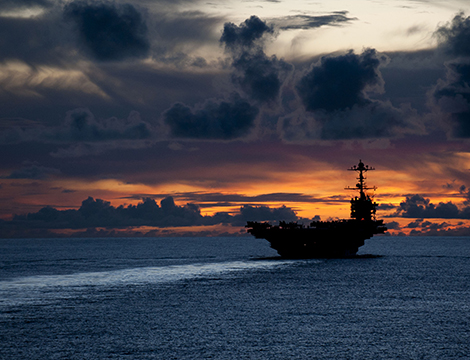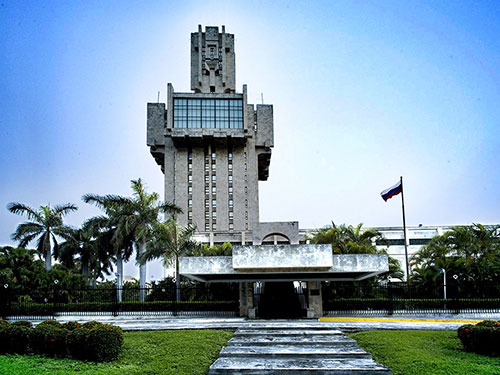
This article was originally published by War on the Rocks on 28 July 2016
Editor’s Note: You can read a longer account of Steve Blank’s visit to the U.S.S. Carl Vinson at his website later this week.
Sitting backwards in a plane with no windows, strapped in a 4-point harness, head encased in a helmet, eyes covered by goggles, your brain can’t process the acceleration. As the C-2 A Greyhound is hurled off an aircraft carrier into the air via a catapult, your body is thrown forward in the air, until a few seconds later, hundreds of feet above the carrier now at 150 miles per hour you yell, “Holy sh*t!” And no one can hear you through the noise, helmet, and ear protectors.
I just spent two days a hundred miles off the coast of Mexico as a guest of the U.S.S. Carl Vinson with Pete Newell (my fellow instructor in the Hacking for Defense class) and 11 other Stanford faculty from CISAC and the Hoover Institution. It’s hard to spend time on a carrier and not be impressed with the Navy and the dedicated people who man the carrier and serve their country.

